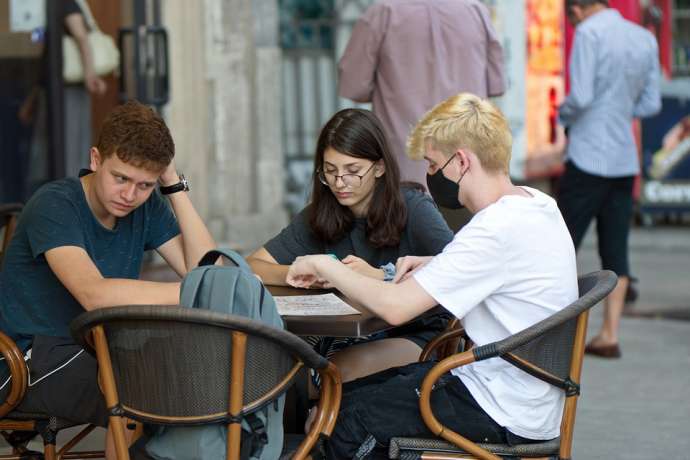STA, 12 August 2020 - A survey about young people during the epidemic has shown that youths perceived distance learning as less effective than in-class education. More than a quarter were concerned about finishing the year. But the biggest problem for them was the lack of social contacts. Nevertheless, most also see positive sides of the situation.
About 72% of the young included in the survey conducted by the Slovenian Youth Council in May and June assessed that remote learning was less efficient than traditional schooling.
More than half of them believe they did not absorb the knowledge well enough and that they did not receive adequate and clear information.
About 20% of the respondents said they did not have all the required equipment for home schooling. More than a third had problems with internet connection, and more than a quarter expressed concern about whether they will be able to finish the year at all.
Six percent of respondents said that they did not have their own access to fresh air such as a balcony, terrace or a garden during lockdown, while 16% reported not having the necessary peace and quiet in their home when needed.
About 17% of the young included in the survey had to move home from their student dorm because of the epidemic.
As for coping with the absence of public transport, 14% said this had a negative impact on their everyday life because they would need public transport during the epidemic or because they had to help others who would need it. But more than half (53%) said they use public transport regularly but did not needed it during the epidemic.
Almost half of respondents (47%) said their income decreased during the epidemic, and one in four said their income in that period was not enough to cover their basic needs. The Youth Council attributes this drop to a drop in demand for student work.
The feelings of loneliness increased among some young people, with 15% of young women and 7% of young men saying they had nobody to turn to.
About 49% of young women and 36% of young men said they obeyed all rules and recommendations during the epidemic.
As many as 69% of respondents said they missed contacts with other people, especially their friends and relatives.
However, 85% of respondents also detected some positive changes, such as changes to their personal habits, pointing to better hygiene standards and a healthier lifestyle, but also to positive changes related to environment protection, calmer lifestyle, opening hours of shops, more family time, less traffic, changed shopping habits, solidarity, and digitalisation.







